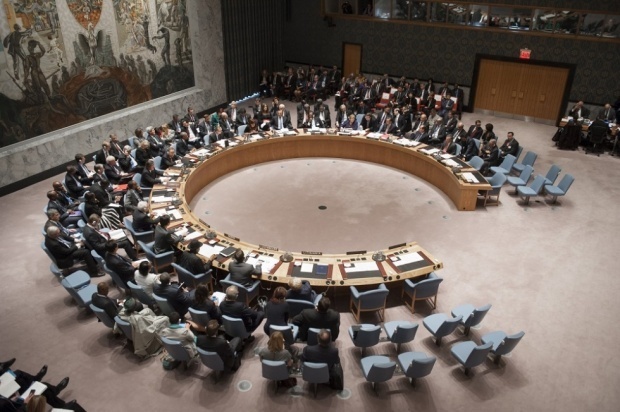
Israel withdrew on Friday from a race against Germany and Belgium for two seats on the United Nations Security Council in 2019-20.
The 193-member UN General Assembly is due to vote next month on five new members for a two-year term starting on 1 January 2019. Israel, Germany and Belgium were competing for two seats allocated to the Western European and Others Group.
Germany and Belgium are now running uncontested, but they still need to win more than two-thirds of the overall General Assembly vote to be elected.
"It was decided that we will continue to act with our allies to allow for Israel to realise its right for full participation and inclusion in decision-making processes at the UN," Israel's mission to the United Nations said in a statement.
READ MORE ►
'We have the right to live': Why Palestinians in Gaza will keep protesting
"After consulting with our partners, including our good friends, the state of Israel has decided to postpone its candidacy for a seat on the Security Council," the statement added.
A UN source, speaking on condition of anonymity, said Israel had withdrawn because of its low chances of winning.
Regional groups generally agree upon the candidates to put forward and competitive races for seats are increasingly rare. Each year the General Assembly elects five new members.
Richard Grenell, who was sworn in as the US ambassador to Germany on Thursday, said in March that the United States had brokered a deal in the 1990s with countries in the UN's Western European and Others Group to allow Israel to run uncontested for a seat.
Grenell, who was the US spokesman at the UN from 2001 to 2009, tweeted about the issue on March 14. "Israel has waited 19 years! The US must demand that Europe keep its word," he said.
German diplomats denied any such agreement was made. The Israeli mission to the UN declined to comment at the time on Grenell's tweet.
The council, on which the five permanent members – the United States, Britain, France, China and Russia – hold veto powers, is the only UN body that can make legally binding decisions, as well as imposing sanctions and authorizing the use of force.
To ensure geographical representation on the council, there are five seats for African and Asian states; one for Eastern European states; two for the Latin American and Caribbean states; and two for Western European and other states.
Indonesia and the Maldives are competing for one Asia-Pacific seat in 2019-20, while South Africa and the Dominican Republic are running uncontested for the African and Latin American and Caribbean group seats.
[contf]
[contfnew]

middle east eye
[contfnewc]
[contfnewc]





